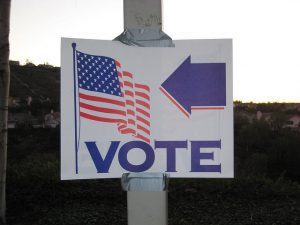Posted in Business Start Ups, Corporate Law

Nabors Industries’ shareholders approved a shareholder proposal to exclude broker nonvotes from the company’s voting calculation in June.
- The proposal was introduced by the California Public Employees’ Retirement System (“CalPERS”). There were close votes on shareholder proposals submitted at last year’s annual meeting.
- Last year’s proposals didn’t receive majority support under the company’s methodology of including broker nonvotes. They would’ve received a narrow majority if broker nonvotes were excluded.
Cheniere Energy, Inc., postponed its annual meeting scheduled in June due to a lawsuit by a shareholder. The legal action seeks recovery of shares of stock that were awarded under the company’s incentive plan last year.
- The shareholder alleges the plan did not receive enough shareholder approval because the company did not count abstentions as a “no” vote as the shareholder claims is required under Delaware law.
- The Wall Street Journal reports that the company canceled the compensation plan proposal at issue and has sought dismissal of the lawsuit, stating “the vast majority of the plaintiff’s claims are moot” with the cancellation of the proposal.
The confusion over vote counting is due to the various sources of authority and standards governing the shareholder vote-counting. A company needs to look at state law requirements, charter provisions, bylaw provisions and any stock exchange requirements.
- After deciding the correct voting standard on a proposal (such as a majority of votes cast or a majority of shares present and entitled to vote), and
- The treatment of abstentions and broker nonvotes under state law, governing documents and exchange requirements needs to be considered.
Outcomes can vary depending on the standards used.
- Under the “majority of shares present and entitled to vote” standard under Delaware law, abstentions are counted as present and entitled to vote. They have the effect of a “no” vote.
- In a “majority of votes cast” standard under Delaware law, abstentions are not considered votes cast. They have no effect on the vote outcome.
- New York Stock Exchange (NYSE) rules require shareholder approval for certain corporate actions (such as all equity-compensation plans) and impose a standard of majority of votes cast for these proposals.
- The NYSE has historically considered abstentions as votes cast, contrary to the Delaware standard of not counting abstentions under this voting standard.
In the Cheniere case, the shareholder argues the company needed to count abstentions as a “no” vote under the “majority of shares present and entitled to vote” standard spelled out in the company’s bylaws and under Delaware law. The company argues it properly applied the NYSE rules that focus on the votes-cast standard so did not count abstentions as negative ballots.
Just as in political elections, who is allowed to vote in corporate matters can mean the difference between victory and defeat. If you have questions about corporate voting, or feel your rights as a shareholder have been infringed because of how a vote was taken, call my office so we can talk about the situation.
